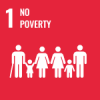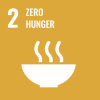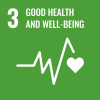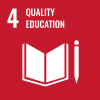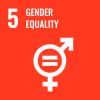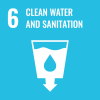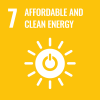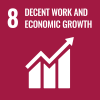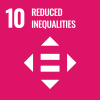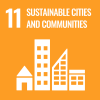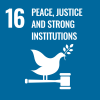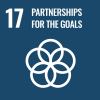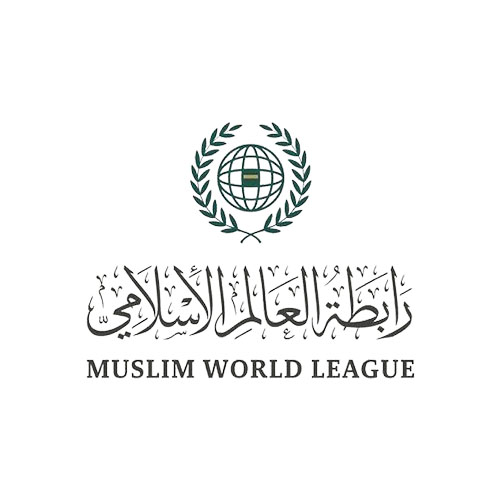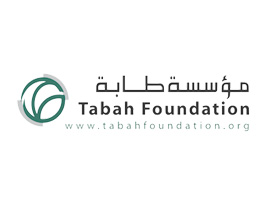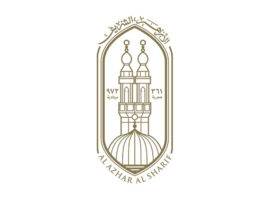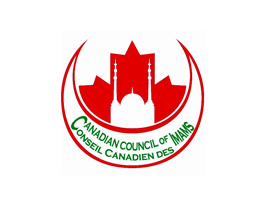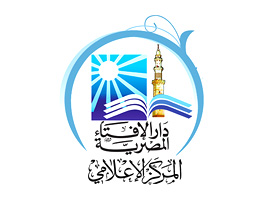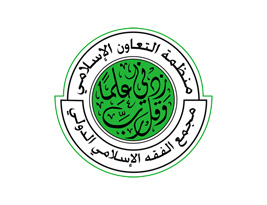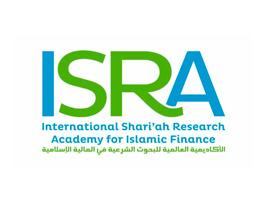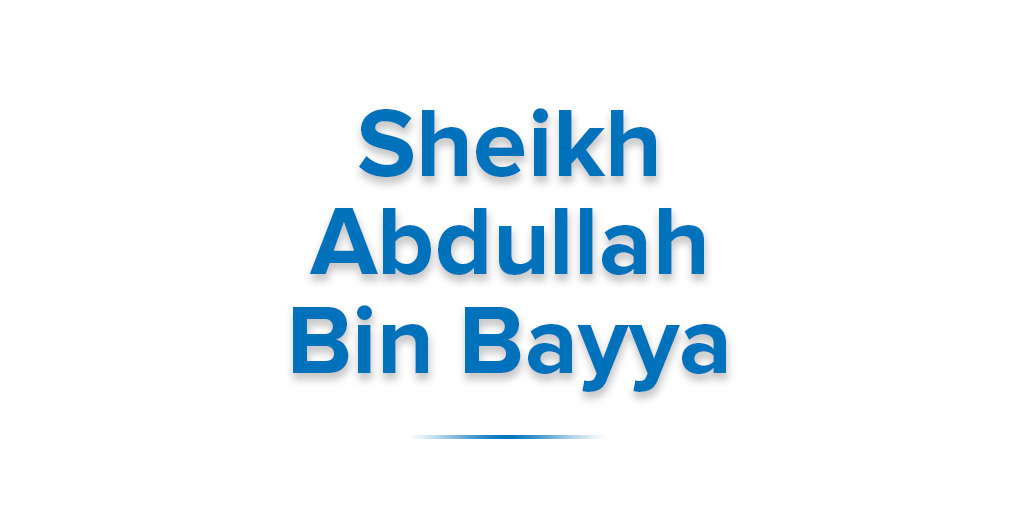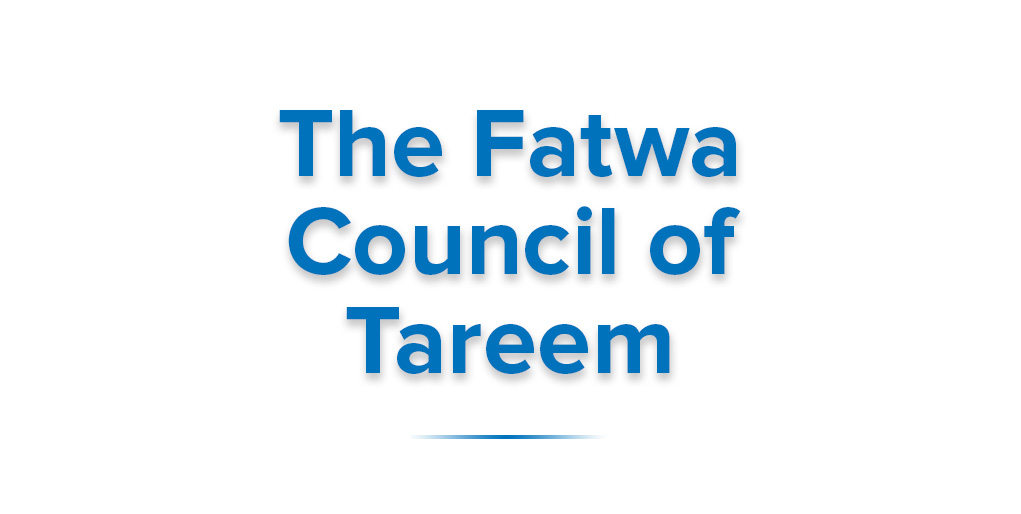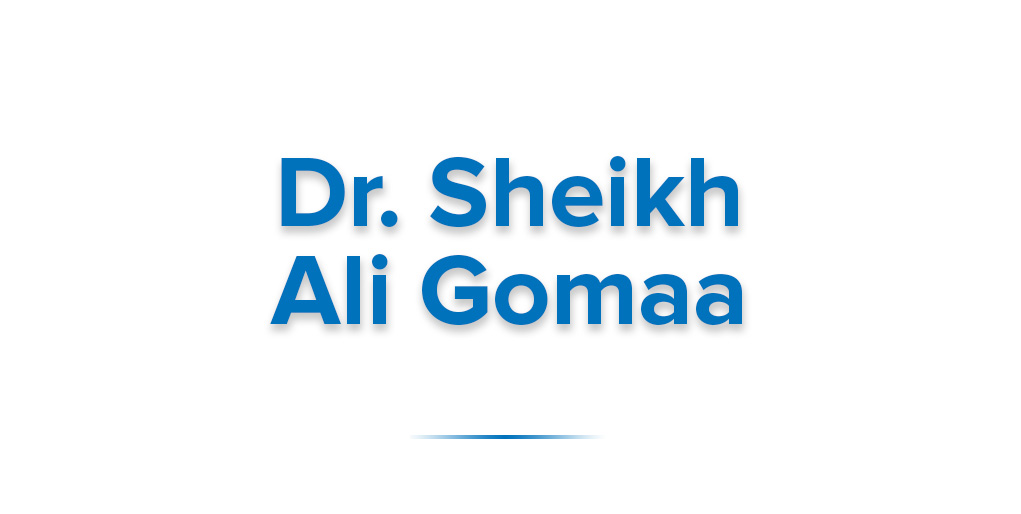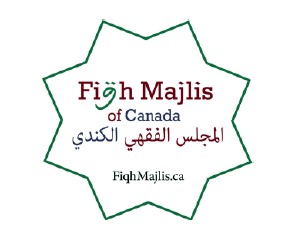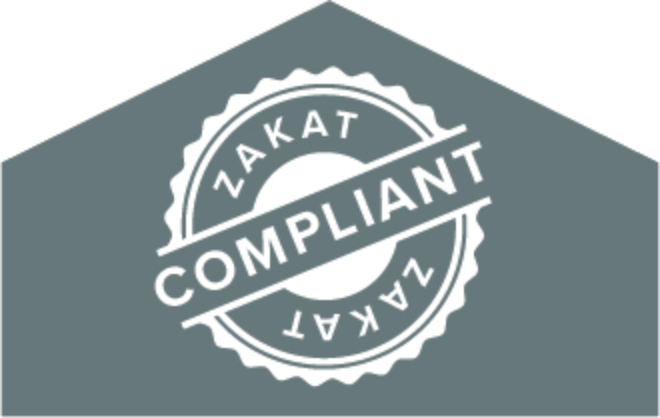Foreword by H.E. Prof Dr. Koutoub Moustapha Sano
Secretary-General of the International Islamic Fiqh Academy
IIFA is humbled to continue lending its support to UNHCR, which is working tirelessly to ensure commitment of Zakat compliance through its Refugee Zakat Fund.
Foreword by Ventje Rahardjo Soedigno
Executive Director, Komite Nasional Ekonomi dan Keuangan Syariah (KNEKS)
KNEKS supports UNHCR’s robust Refugee Zakat Fund which maintains 100% transparency and ensures that 100% of all zakat donations goes directly to eligible families in need.
Foreword by Khaled Khalifa
Regional Representative to the GCC Countries
Since the piloting of the Refugee Zakat Fund in 2017, more than 4.3 million people have been supported in 18 countries with Zakat and Sadaqah funds.
Executive Summary
Islamic Philanthropy in Service of Refugees: 2021 Year in Review
In 2021, UNHCR’s Refugee Zakat Fund distribution activities impacted the lives of more than 1.2 million beneficiaries in 14 countries.
Impact of the Refugee Zakat Fund
Zakat and Sadaqah Distribution Countries
Impact Stories
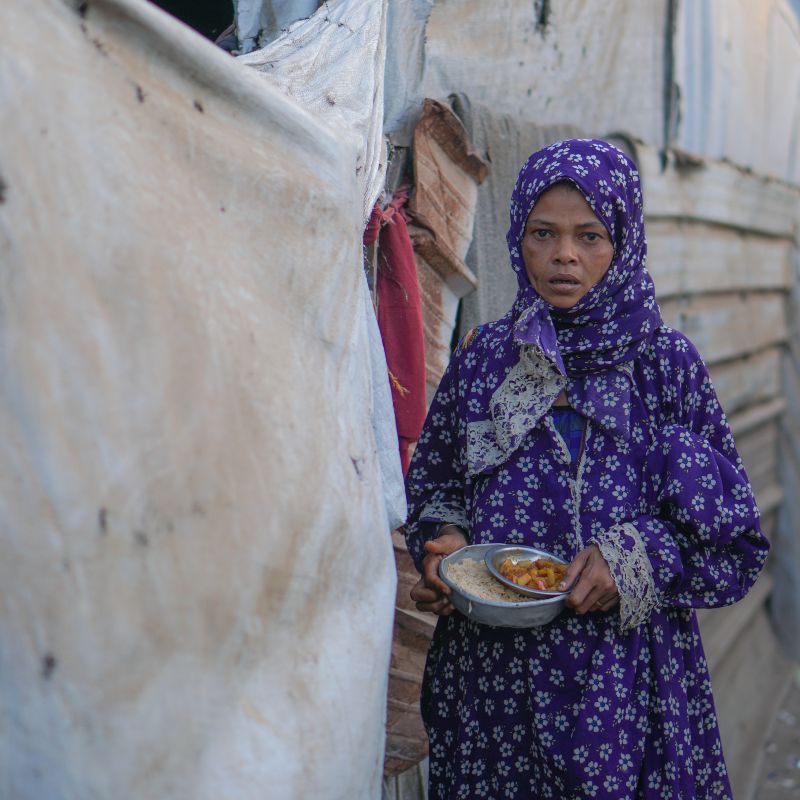
Hanan,
Displaced Yemeni
Yemeni mother strives to overcome barriers
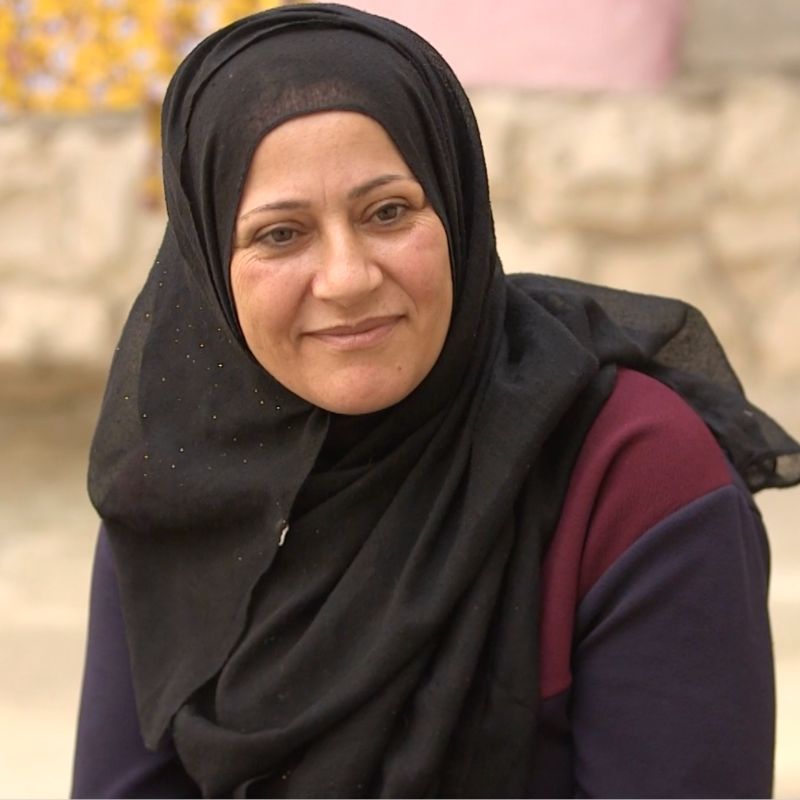
Nawal,
Syrian refugee in Jordan
Resilience and strength in the face of hardship
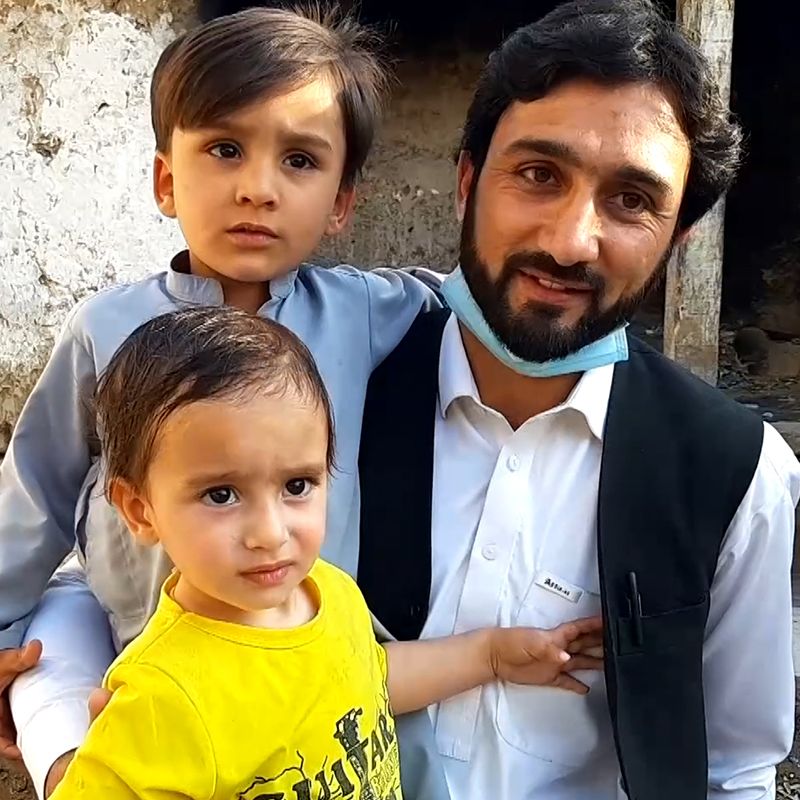
Jamil,
Afghan Refugee in Pakistan
Jamil's story is one of resilience and hope
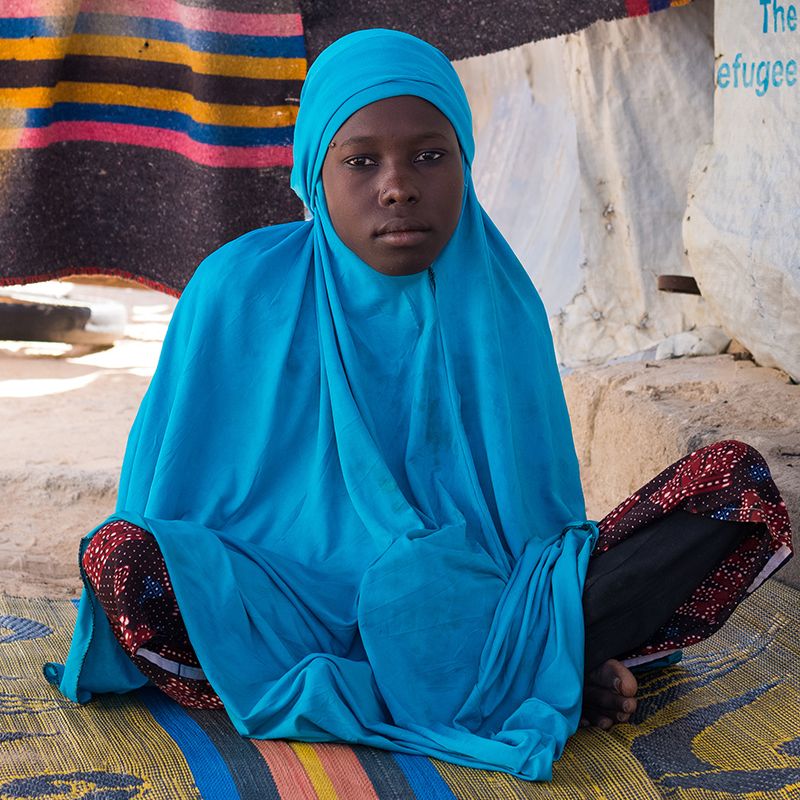
Falmata,
Displaced Nigerian
Falmata shows unparalleled bravery and courage
Islamic Philanthropy in the Service of

Key Highlights
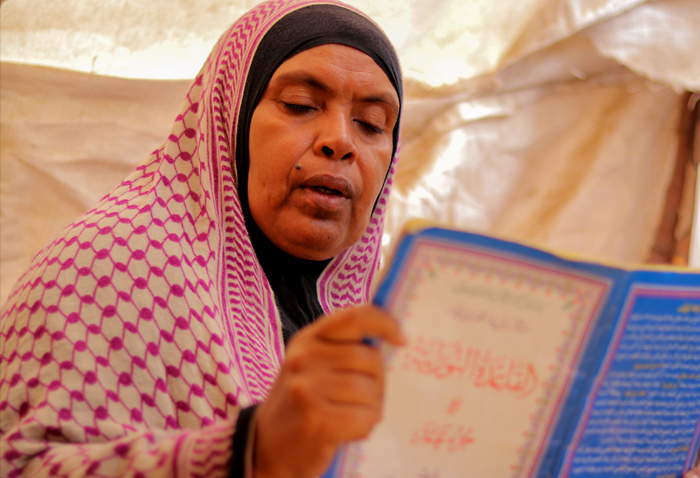
Campaigns
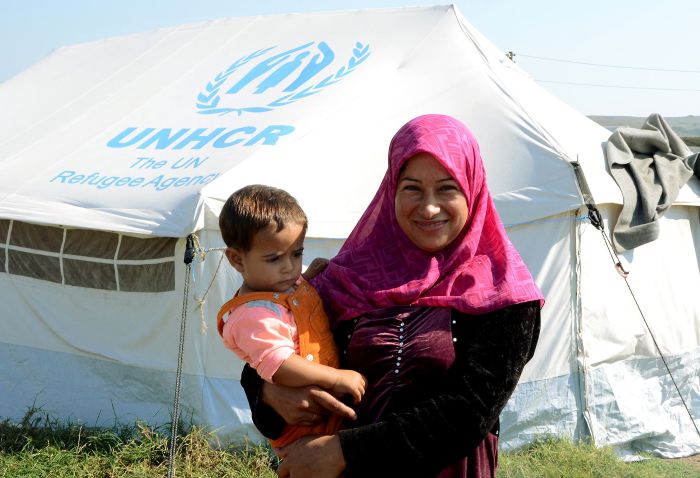
New Fatawa
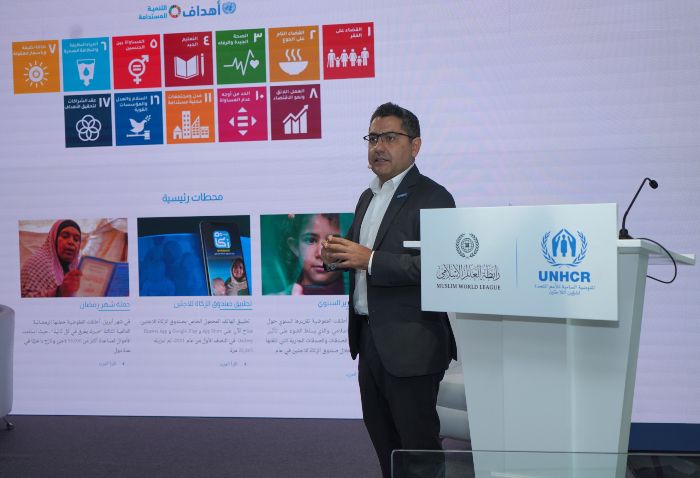
Reports Launches
Islamic Philanthropy Partners Across the Globe
Partnerships In Focus
Badan Amil Zakat Nasional (BAZNAS)
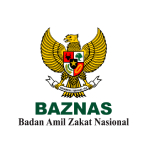
BAZNAS and the government are responsible for overseeing Zakat management based on Islamic law, trust, benefit, justice, legal certainty, integration, and accountability.
Rahmatan Lil Alamin Foundation
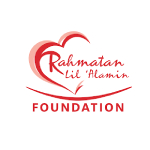
RLAF was set up by the Islamic Religious Council of Singapore in 2005 for the Singaporean Muslim Community to radiate compassion and kindness to poor, needy and victims of disaster regardless of the faith, race, or creed.
Rumah Zakat
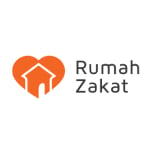
Rumah Zakat – one of the most trusted zakat agencies in Indonesia – manages Zakat, Sadaqah alms, Waqf, and other social funds through community empowerment programs.
Majlis Agama Islam Wilayah Persekutuan (MAIWP)
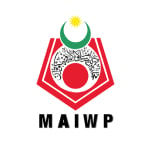
MAIWP is the largest Zakat agency in Malaysia, established to safeguard and manage Islamic affairs in the Malaysian Federal Territories including Kuala Lumpur, Labuan, and Putrajaya.
The Refugee Zakat Fund
The Refugee Zakat Fund, launched in 2019 by UNHCR, has been a key partnership mechanism – effective, compliant and trusted by institutions and individuals. During the pilot phase in 2017-2018, more than 34,000 refugees in Jordan and Lebanon were supported with Zakat funds. In 2019, just over 1 million beneficiaries were supported with both Zakat and Sadaqah. In 2020, impact doubled to more than 2 million beneficiaries across 13 countries. In 2021, more than 1.2 million beneficiaries were supported. Since 2017, a total of $154.24 million had been received through the Refugee Zakat Fund, 85% of which was Zakat.
Trusted
Compliant
Effective
Executive Summary
In 2021, UNHCR’s Refugee Zakat Fund distribution activities impacted the lives of more than 1.2 million beneficiaries in 14 countries, thanks to generous Zakat and Sadaqah donations from institutional and individual donors. For the third year in a row, Sheikh Thani bin Abdullah bin Thani Al Thani Fund provided a sizable portion of these donations.
More than $23.6 million in Zakat funds were received by the Refugee Zakat Fund, following its 100% Zakat distribution policy, assisting more than 686,000 refugees and internally displaced people (IDPs) in 13 countries, namely Afghanistan, Bangladesh, Egypt, India, Indonesia, Iraq, Jordan, Lebanon, Malaysia, Mauritania, Nigeria, Pakistan and Yemen. Similarly, over $11.7 million in Sadaqah funds have helped more than 596,000 beneficiaries in 10 countries.
Strong linkages have been identified between the impact of Zakat/ Sadaqah and the realization of several of the Sustainable Development Goals (SDGs), primarily: No Poverty (SDG 1), Zero Hunger (SDG 2), Good Health and Well-being (SDG 3), Quality Education (SDG 4), Gender Equality (SDG 5) and Clean Water and Sanitation (SDG 6). This was possible thanks to multi-purpose cash assistance programmes, core-relief items, hygiene and sanitary products, livelihood programmes, social services and access to cleaner energy sources.
UNHCR’s 2021 Global Ramadan Campaign, “Every Gift Counts”, launched in conjunction with the issuance of the previous annual Islamic Philanthropy report, played an essential role in driving this impact, as did UNHCR’s annual winter campaign, which helped refugees and IDPs in the MENA region with core winter relief items, cash support, and waterproofing.
Digital technology continued to be at the center of UNHCR’s approach to Islamic Philanthropy, with 2021 witnessing the introduction of three new initiatives: 1) the option to donate Zakat al-Fitr to refugees during the month of Ramadan; 2) launch of the Refugee Zakat Fund mobile app, which, as a new technology tool, proved essential in engaging new audiences and raising much needed funds throughout the year; and 3) launch of UNHCR’s first Dhul Hijjah campaign.
Several Islamic institutions and organizations have provided additional endorsement to the governance and compliance of UNHCR’s Refugee Zakat Fund during 2021. The Muslim World League’s Islamic Fiqh Council, Al-Azhar Islamic Research Academy, the International Sharia Research Academy (ISRA), and the Canadian Council of Imams (CCI) issued fatwas further authorizing UNHCR to receive and distribute Zakat to refugees and IDPs. Additionally, the Fiqh Majlis of Canada endorsed the receipt and distribution of Zakat towards UNHCR’s “Aiming Higher” higher education scholarships programme.
In 2022, UNHCR’s global needs amount to $8.99 billion to assist an expected 102.6 million refugees, IDPs and other people of concern (POCs), out of which $3.1 billion is needed in Zakat and Sadaqah distribution countries to help 24.8 million refugees and IDPs with much needed cash and essential goods. This year’s campaigns including Ramadan, Dhul Hijjah and Winter will continue to be key drivers towards increasing the impact of Islamic Philanthropy on the lives of vulnerable refugees and IDPs around the world.
Foreword by UNHCR
Dear Reader,
UNHCR is launching its 2022 annual Islamic Philanthropy report, marking the importance of Zakat and Sadaqah distribution in our global humanitarian response to support the most vulnerable out of more than 84 million displaced persons, many of whom have risked their lives to find safety, and are now living in poverty and debt.
In light of these compounded challenges, Islamic Philanthropy has been increasingly playing a vital role in covering some of the most essential humanitarian needs of refugees and internally displaced persons (IDPs). The Refugee Zakat Fund, UNHCR’s flagship Islamic Philanthropy mechanism, continued to maintain a 100% Zakat distribution policy, assisting more than 1.2 million vulnerable beneficiaries during 2021.
We have been humbled to receive further endorsements from leading Islamic institutions including the Muslim World League, Al Azhar Islamic Research Academy, and the Canadian Council of Imams. We are grateful to these forward-thinking entities for their trust in UNHCR and our ability to deliver meaningful humanitarian assistance, including in hard-to-reach areas.
In the spirit of demonstrated transparency, we proudly present to you UNHCR’s 4th Islamic Philanthropy Annual Report, highlighting the impact of Zakat and Sadaqah funds on the lives of refugees and IDPs worldwide. Islamic Philanthropy tools such as Zakat, Sadaqah, Sadaqah Jariyah and Waqf have been crucial in complementing private and public funding sources required to meet the growing humanitarian and developmental needs for refugees, IDPs and host communities primarily in MENA, Africa, and Asia.
Thanks to the support of our partners and donors, UNHCR estimates the number of beneficiaries of Zakat and Sadaqah funds it received during 2021 at more than 1.2 million people. Since the piloting of the Refugee Zakat Fund in 2017, more than 4.3 million people have been supported in 18 countries with Zakat and Sadaqah funds, reinforcing the role of Muslim communities and organizations in extending a helping hand to their fellow people in need. As UNHCR continues to receive support from partners and donors, I would like to extend my heartfelt thanks to all our contributors worldwide.
Here I would like to particularly thank Sheikh Thani Bin Abdullah Bin Thani Al-Thani Humanitarian Fund for their continuous support, in addition to the OIC’s International Islamic Fiqh Academy (IIFA) for endorsing the Refugee Zakat Fund and co-hosting the report launch in Jeddah. Special thanks also go to KNEKS for co-hosting the report launch in Jakarta.
Finally, with the continuous increase in humanitarian needs among refugees and displaced people, we invite organizations to dedicate part of their Sadaqah and Zakat to this vulnerable group, particularly this upcoming month of Ramadan. Your donation will contribute to providing necessities to those most in need.
Thank you.
Khaled Khalifa
Senior Advisor to the High Commissioner
Representative to the GCC Countries
Foreword by International Islamic Fiqh Academy (IIFA)
In the Name of Allah, the Merciful, the Beneficent.
Praise be to the Lord of all worlds. Prayers and peace be upon whom has been sent as a mercy for the worlds, our Master Muhammad, his pure family, his blessed companions, and those who followed them with piety until the Day of Judgement.
Assalam alaikum wa rahmatullah wa barakatuh.
I would like to introduce to you UNHCR’s Islamic Philanthropy Report, which, in its new interactive format, highlights the impact of Zakat and Sadaqah funds received by UNHCR during 2021, on the lives of refugees and internally displaced persons (IDPs) around the world.
With the grace of Allah, UNHCR has been able to provide critical cash-assistance and access to livelihood opportunities, education, clean water and much more, to those most in need, thereby helping ensure that they continue to live their lives with dignity and well-being. Through the determination of its leadership and staff, UNHCR has been able to achieve this impact while following the prerogatives of Islamic law, which is based on the duty of spreading social justice.
This report, which is UNHCR’s fourth such annual report on Islamic Philanthropy, describes the impact of Islamic social finance tools on the lives of refugees and IDPs in light of the COVID-19 pandemic, as well as the protraction of the crises for many displaced populations, including those from Syria, Yemen, Iraq and Myanmar’s Rohingyas, in addition to growing numbers of refugees and IDPs from Afghanistan.
More than 60% of refugees and IDPs come from member countries of the Organization of Islamic Cooperation (OIC). For this, the global Muslim community, both individuals and organizations, has been generously lending its support to UNHCR’s Refugee Zakat Fund, with Zakat and Sadaqah donations aimed at supporting most vulnerable refugees and IDPs. We hope that endorsing fatwas provided by leading Islamic institutions, including the International Islamic Fiqh Academy (IIFA), continue to contribute to enforcing the credibility, positioning, and impact of UNHCR’s Refugee Zakat Fund.
With humanitarian needs on the rise, IIFA is humbled to continue lending its support to UNHCR, which is working tirelessly to ensure commitment of Zakat compliance through its Refugee Zakat Fund. In fact, we applaud UNHCR’s taking the extra mile to demonstrate transparency through a consistent approach to reporting.
Finally, I would like to sincerely thank individual and organizations for committing part of their Zakat and Sadaqah to UNHCR, and I invite Islamic Philanthropy actors around the world to always include refugees and IDPs in their strategies and plans, making sure they aren’t left behind, while achieving the SDGs that everyone is striving for. For Allah is He Who gives all Sustenance, and He knows best.
H.E. Prof Dr. Koutoub Moustapha Sano
Secretary-General of the International Islamic Fiqh Academy
Foreword by Komite Nasional Ekonomi dan Keuangan Syariah (KNEKS)
Assalamualaikum Warahmahtullahi Wabarrakatuh reader,
KNEKS is proud to be join UNHCR in launching the Islamic Philanthropy 2021 Annual Report in Indonesia, as it is very well in line with the vision and strategic programs of KNEKS and other key stakeholders of Islamic economy in Indonesia in promoting Islamic social finance. KNEKS supports UNHCR, as one of the trusted distributors of zakat and Islamic social funds, in its mission to aid vulnerable refugees and displaced persons across the globe.
KNEKS is honoured to partner with UNHCR, as it continues to provide assistance and durable solutions to the over 84 million displaced persons worldwide.
KNEKS also believes that it is very important for various Islamic entities in Indonesia both in the public and private sector to join hands with UNHCR. Finding solutions to the displacement crisis is not only UNHCR’s responsibility but a communal one.
The number of refugees and other forcibly displaced people continues to rise and the COVID-19 pandemic has only made matters worse, making many refugees further reliant on assistance to access shelter, healthcare and education, among other priority needs. For this reason, KNEKS reaffirms its support to contribute to the promotion of all UNHCR Islamic Philanthropy efforts, which are aligned with the vision of the Islamic social finance sector in Indonesia to utilize Islamic funding for the good of humankind.
KNEKS congratulates UNHCR for working tirelessly for the past 70 years to support refugees all around the world. We would like to extend our heartfelt thanks also to all the generous donors both from the public and private sector which have supported and continue to support the work of UNHCR. KNEKS also supports UNHCR’s robust Refugee Zakat Fund which maintains 100% transparency and ensures that 100% of all zakat donations goes directly to eligible families in need.
Finally, with the continuous increase in humanitarian needs among refugees and displaced people, we invite all Islamic corporations, Amils Zakat and other leading organizations in Indonesia to build a strong cooperation with UNHCR. Your support will go a long way to give the ummah a second chance to rebuild their life in safety and dignity.
Jazakhallah Khairun Kathiran
Best Regards
Ventje Rahardjo Soedigno
Executive Director
Komite Nasional Ekonomi dan Keuangan Syariah (KNEKS)
BADAN AMIL ZAKAT NASIONAL (BAZNAS)
The Badan Amil Zakat Nasional (BAZNAS) is an official body established by the government of Indonesia to collect and distribute Zakat, Infaq, Sadaqah alms and waqf at the national level. BAZNAS is authorized to independently manage zakat in the country and is accountable to the President of Indonesia through the Minister of Religion. BAZNAS and the government are responsible for overseeing Zakat management based on Islamic law, trust, benefit, justice, legal certainty, integration, and accountability.
There are four core functions of BAZNAS: (1) Planning for collection, distribution, and utilization of zakat; (2) To collect, distribute, and utilize zakat; (3) Control of the collection, distribution, and utilization of zakat; (4) Reporting and accountability for the implementation of zakat management.
BAZNAS has been working closely with the UN family since 2017, and has supported UN agencies such as UNICEF, UNRWA and UNDP over the years. Since 2020, BAZNAS has been focusing its support for refugees through UNHCR, including by contributing funding to refugee communities in Indonesia as well as to the displaced persons affected by the situation in Afghanistan.
Rumah Zakat
Rumah Zakat – one of the most trusted zakat agencies in Indonesia – manages Zakat, Sadaqah alms, Waqf, and other social funds through community empowerment programs. The empowerment program has four main focus areas: education, health, economic empowerment, and environmental sustainability initiatives. The growth of Rumah Zakat as a National Zakat Agency is inseparable from its long history, as it was established by an organization small recitation group on 2 July 1998, called the Ummul Quro (DSUQ).
Rumah Zakat and UNHCR have been working closely for years, particularly in supporting basic needs for refugees in some provinces in Indonesia. Rumah Zakat also contributed a significant donation to UNHCR to support Syrian refugees in Jordan in 2021.
In recognition of the impactful collaboration between the two organizations, UNHCR received Rumah Zakat’s “Happiness Award” as one of the strategic partners in global humanitarian action. Rumah Zakat is proudly be committed to supporting UNHCR in the long-term as a strategic partner in the area of Islamic philanthropy.
Majlis Agama Islam Wilayah Persekutuan (MAIWP)
Majlis Agama Islam Wilayah Persekutuan (MAIWP), the Federal Territory Islamic Religious Council, was established to safeguard and manage Islamic affairs in the Malaysian Federal Territories including Kuala Lumpur, Labuan, and Putrajaya. It is the largest Zakat agency in the country. One of the main purposes of its establishment is to aid the poor through zakat and sadaqah collections. Currently, Kuala Lumpur alone holds more than 16% of the refugee population in the country. Understanding the hardships and living conditions of refugees residing in the capital city of Malaysia, MAIWP has decided to extend support to refugees through UNHCR’s Zakat distribution projects, focusing on interventions in the areas of cash assistance, education, and gender-based violence. The partnership with UNHCR is known to be the very first international partnership ever established by MAIWP and will continue to alleviate the sufferings of refugees currently residing in the federal territories of Malaysia.
Rahmatan Lil Alamin Foundation
The Rahmatan Lil Alamin Foundation (RLAF) – or Blessings to All Committee – was set up by MUIS (Islamic Religious Council of Singapore) in 2005 for the Singaporean Muslim Community to radiate compassion and kindness to poor, needy and victims of disaster regardless of the faith, race, or creed. Since it was established as a foundation in 2009, RLAF has supported various humanitarian causes and its initiatives have continued to receive tremendous support from the Muslim community in Singapore.
RLAF has been a strategic long-term partner for UNHCR in Singapore over the years, having strongly supported the displacement cause and UNHCR operations in Syria, Yemen, and Bangladesh among others with its fundraising efforts. RLAF has also participated in field visits to our operations in Bangladesh, Lebanon, and Jordan to better understand the work that they had supported, engage with refugee families and as well as observe the impact of their funding on affected communities.
Hanan, Displaced Yemeni
Hanan and her children were forced to flee their home in Yemen to “Ammar Ibn Yasser” camp in Aden, and she’s the sole provider and caretaker of her children amid living in difficult circumstances.
Telling us the heartbreaking story of her displacement, Hanan stated: “the shelling was too powerful and loud. We felt the power of shelling with everything shaking around us. My children and I were very afraid, and we had no place to go. Where can we go? I immediately took my children and fled to Ammar Bin Yasser Camp.”
Yemen is one of the worst humanitarian crises in the world, with two thirds of the population dependent on humanitarian aid to survive, and hundreds of thousands of families at risk of famine and malnutrition. Displaced families like Hanan’s are considered four times more at risk compared to other Yemeni families. Expressing her situation, Hanan added: “I face hardship with providing many necessities at home, such as food, water, clothes for my children, and the most important thing, medication. If any of my children get sick, I cannot help them. At night, we cannot sleep because of hunger… I feel disheartened when I think ‘are my children going to eat the next day?’”
“When I don’t have anything to feed my children, I don’t eat at all.”
UNHCR provides cash assistance in Yemen to the most vulnerable families, like Hanan’s, to help them afford their basic needs, such as food, shelter and medication. Upon arrival at the camp, Hanan and her children were provided with a tent including a small kitchen and a bathroom.
The story of Hanan resembles the situation of people and families that we are mandated to protect and help in Yemen and around the world. Those who lost their homes, possessions, and livelihoods to conflict, war or disaster. When we think about the impact of Zakat and Sadaqah donations, our thoughts go directly to families like Hanan’s who described her best moments as: “I feel that I own the world when I see my children around me, safe and in good health”.
Thanks to Zakat and Sadaqah funds, UNHCR was able to support 63,540 displaced families - some 375,174 people - in Yemen during 2021.
Nawal, Syrian Refugee in Jordan
Nawal was forced to flee her home in Daraa in 2013 due to war, and as a widowed mother of 3 today, she’s the sole provider and caretaker of her children, while struggling to make ends meet.
Nawal’s husband died in 2016, and since then she has had to carry the heavy burden of being the sole provider for her children, which she has taken on with patience and resilience. While describing her life since fleeing her home and losing her husband, she said: “Those years were shaped by suffering and poverty… the responsibility of providing for the children and needs of the house… I didn’t feel any of that until after my husband passed away in 2016.”
This family is one of hundreds of thousands of Syrian refugee families in the region, who live in desperate conditions amid the rise of poverty rates, economic downturn, and spike in food prices. We met Nawal back in November 2021, as part of our field visits to refugee families in Jordan to assess their needs and preparations for the winter season. She told us then that she hoped to receive UNHCR’s winter cash assistance, to be able to provide warmth for her family, and expressed the challenges she faces in the harsh season: “Suffering is during the months of December, January and February… I have a fuel heater. We warm up the room then turn it off. We cover ourselves with blankets after that.“It’s a blessing from the sky. Those who help us and stand with us, God sent them as a blessing,” Nawal said on receiving the winter cash assistance.
UNHCR provides winter cash assistance to the most vulnerable refugee families, like Nawal’s, in Jordan and in the region, in order to help them provide warmth and afford their basic needs. Nawal’s family had previously received the monthly cash assistance which UNHCR distributes to extremely vulnerable families in order to help them afford their basic needs.
Our interview with Nawal coincided with her receiving the SMS informing her that she will be receiving winter cash assistance. Overcome with relief, she said: “I always ask God to place generous people in our way who give a helping hand … and as you see, God sent us good people to help… Now I can pay for our winter needs. I owe the pharmacy money for medicine, I am also three months late for my house rent. The house is leaking, maybe I can fix it before winter arrives.” This is where your Zakat goes: to the hands of the most vulnerable.
Thanks to Zakat and Sadaqah funds, UNHCR was able to support 17,923 refugee families - some 78,862 people - in Jordan during 2021.
Jamil, Afghan Refugee in Pakistan
“My weakness is my strength. I believe nothing is impossible in this world if you are honest and determined to reach your goals. My motto is ‘serve humanity’, and I aim to make sure everyone has access to schools and better education opportunities.” – Jamil
Jamil was born a refugee in Pakistan after his family fled Afghanistan in 1979. Despite challenges, Jamil successfully completed school in Pakistan, receiving many awards and certificates. UNHCR helped Jamil with a wheelchair, and his family previously benefited from UNHCR’s assistance. Today he gives back generously to his community; he even started a charitable organization where he was elected president, supporting widows, orphans, and daily wagers throughout the pandemic.
Jamil’s story inspires us through his courage and compassion to help others in his community. He shows us a beautiful example of how refugees can overcome almost anything, with just a little bit of help.
Thanks to Zakat funds, UNHCR was able to support 800 refugee families - some 4,800 people - in Pakistan during 2021.
Falmata, Displaced Nigerian
In 2021, for the first time, UNHCR Nigeria received a Sadaqah donation to to support child protection activities for IDPs in Nigeria. Falmata is one of many internally displaced children who benefit from UNHCR’s child protection services, including psychosocial support.
We first met Falmata last year. We are so inspired by her courage and bravery. At only 12 years old, Falmata has lived most of her life without a family. Her father was killed by an extremist group, and she later lost both her mother and grandmother in displacement. She was also separated from her sister. When asked what Falmata wants to do, she insisted on her determination to study well and get a good job.
While Falmata lost the use of her legs after having Polio, when asked about this she responded bravely: “I am a normal person walking with my legs.” Her endless strength and optimism makes us sure that she will succeed in fulfilling her highest potential.
Thanks to Zakat and Sadaqah funds, UNHCR was able to support 8,758 displaced families - some 47,487 people - in Nigeria during 2021.
Campaigns
Dhul Hijja campaign
With many Yemenis facing hunger as they cannot afford to buy food, and the prospect of poverty and humanitarian needs exponentially growing, in July and on the occasion of Dhul Hijjah and Eid Al Adha, UNHCR launched for the first time a global digital campaign to encourage the public to remember and support displaced families in Yemen with the necessary means to purchase food and other essential items, through the provision of much-needed cash assistance.
The campaign supported 916 displaced Yemeni families, who are part of a larger number of UNHCR beneficiaries in Yemen.
Ramadan campaign
In April, UNHCR launched its third global Ramadan campaign ‘Every Second Counts’, raising funds to provide lifesaving support to more than 58,000 refugees and internally displaced people worldwide. The campaign highlighted the impact that individuals can create within seconds in the lives of refugees and displaced families who have been forced to flee their homes in search of safety.
Funds raised have been used to provide refugees and IDPs with safe shelter, food, clean water, medicine, and other amenities.
Winter Campaign
Every year, before winter, UNHCR gears up to provide winter support to millions of refugees and IDPs in Egypt, Iraq, Jordan, Lebanon and Syria. With generous contributions, including Zakat and Sadaqah funds, and despite challenges related to COVID-19 and access constraints, UNHCR was able to provide winterization support to more 2.6 million displaced people across the MENA region, including those affected by storms and floods.
UNHCR’s winterization assistance focuses on three areas of intervention:
- Provision of seasonal cash assistance for vulnerable families to meet their additional needs during the winter months.
- Winterization of shelter including shelter weatherproofing and repairs, improvements to drainage systems and other infrastructure in camps and informal settlements.
- The provision of core relief items specific to winter such as high thermal blankets, plastic sheets, and winter clothes.
Early planning, preparation and procurement allows UNHCR and its partners to reach beneficiaries in time to prepare for the harsh winter.
Refugee Zakat Fund App
The mobile app of the Refugee Zakat Fund is now available on the App Store, Google Play and Huawei App Gallery. In 2021, it was downloaded more than 120,000 times.
The Refugee Zakat Fund App delivers 100% of Zakat donations to eligible refugees and internally displaced families. It provides users with various secure payment methods and a simplified process for Sadaqah and Zakat donations. Zakat donors can track their Zakat at any time on the app, and check the live reports to learn how many families will be supported through online Zakat donations received by UNHCR’s Refugee Zakat Fund.
Download the Refugee Zakat Fund App now
Report Launches
2021 IP Mid-Year Report Launch
In December, UNHCR launched its Islamic Philanthropy 2021 Mid-Year Report in its new digital and interactive format, in partnership with the Muslim World League at their pavilion in EXPO 2020 Dubai. The report highlighted the impact of Zakat and Sadaqah donations received in the first half of 2021 on 584,586 refugees and IDPs in 12 countries. It also revealed that over 70% of donations to the Refugee Zakat Fund were Zakat contributions.
2021 IP Annual Report Launch
In April, UNHCR launched its Islamic Philanthropy 2021 Annual Report, highlighting the impact of Zakat and Sadaqah donations received through its Refugee Zakat Fund in 2020. The report was launched with a virtual press conference, with representatives from OIC’s International Islamic Fiqh Academy (IIFA), Sheikh Thani Bin Abdullah Bin Thani Al-Thani Humanitarian Fund and Amanie Group.
According to the report, UNHCR supported 2.1 million vulnerable refugees and IDPs through Zakat and Sadaqah funds in 2020, thanks to partners and philanthropists across the world. In comparison to 2019, Zakat donations witnessed an increase of 12.5%, triggering a significant growth of 59% in Zakat beneficiaries.
New Fatawa
In 2021, UNHCR received 4 additional fatawa endorsing the Refugee Zakat Fund’s receipt and distribution of Zakat to the most vulnerable refugees and IDPs. as well as fatawa to raise Zakat el fitr and use Zakat to pay tuition fees.
In February, Malaysia’s leading Islamic finance company, International Shari’ah Research Academy (ISRA), endorsed UNHCR’s Zakat collection and distribution mechanisms as Zakat-compliant.
In March, the Canadian Council of Imams endorsed UNHCR as an eligible organization for receiving Zakat funds from Muslims in Canada and distributing it to refugees where it’s most needed.
Following several requests from donors interested to devote their Zakat al Fitr to refugees and IDPs, UNHCR reached out in April to Al-Azhar Islamic Research Academy (AIRA) to enquire about the permissibility of distributing Zakat al Fitr in cash. After confirming that refugees and IDPs fall under four of the eight categories of Zakat recipients (the poor, the needy, the debtors and the wayfarers), AIRA stated in its fatwa that they are entitled to receive Zakat Al Fitr, and that it is all the more important to assist them during these blessed days.
In December, the Fiqh Majlis of Canada issued a fatwa allowing UNHCR to use Zakat funds to pay for education tuition fees directly to the institution on behalf of the student in need.
To view all fatawa received by UNHCR, please click here.
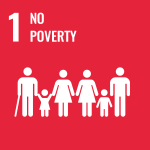
UNHCR is committed to ending poverty by advocating for and supporting refugees to work in their host country. When refugees are able to work, they become self-reliant and are able to provide for themselves and their families, increasing resilience, restoring dignity, and helping entire families to build independent and meaningful futures.
In Pakistan, Zakat funds helped increase the self-reliance, economic and social inclusion of extremely poor refugees and host community members through the ‘poverty graduation’ project; where the distribution of productive assets enabled families to start small-scale businesses.
The communities most at risk for falling below the poverty line include refugees, asylum seekers, internally displaced persons, and returnees. Zakat and Sadaqah funds helped provide critical cash assistance to extremely vulnerable displaced families in Lebanon, Jordan, Iraq, Yemen, Mauritania, and Egypt, helping families to meet their essential needs and preventing those most vulnerable from having to resort to negative coping mechanisms.
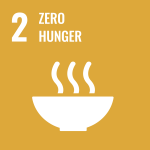
UNHCR has continually supported universal access to safe and nutritious food for the most vulnerable individuals and communities.
Through Zakat funds, UNHCR distributes multi-purpose cash assistance to refugees and IDPs in Iraq, Yemen, Lebanon, Jordan, and Egypt, enabling them to meet their urgent needs, including food.
Ensuring that people have access to adequate nutrient-rich food is essential for protecting the safety, health and well-being of millions who have been forced to flee.
In India, Zakat funds help improve the food security of refugees and host communities through the distribution of food rations to the most vulnerable families including women, children, persons with disabilities and the elderly.
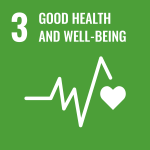
UNHCR strives to facilitate access of refugees and host communities to national healthcare systems. Zakat and Sadaqah funds helped provide multi-purpose cash assistance to refugees and IDPs, enabling them to access services where there are often financial barriers, including health clinics. Our monitoring shows that cash assistance is used in various ways, including essential treatments and medical care, doctor’s fees, and medication.
Sadaqah funds also helped in improving the health status of Sudanese refugees
living in the eastern part of Chad, as well as their host communities, enabling refugees to access essential healthcare services such as hospitalizations, mental health and psychosocial support, essential medication needed for preventive and curative care, as well as providing medical equipment to health centres.
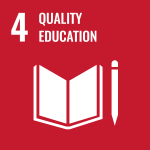
Cash assistance allows refugees to build better futures and is part of UNHCR’s objective to provide longer term solutions to refugees, as well as support education. Dedicating Zakat and Sadaqah funds to the Cash Assistance programme has had a significant impact on the well-being of displaced families. Cash assistance has proven effective in supporting access to education and has helped parents with direct costs such as school fees, uniforms and transportation, addressing barriers that keep children out of school.
Sadaqah funds also helped in improving access to quality education for Sudanese refugees and nearby villages in the eastern part of Chad. The construction and rehabilitation of several classrooms, as well as the maintenance of schools in the area, resulted in better education opportunities for young refugee students.
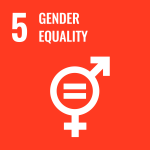
In Lebanon, Jordan, Egypt, Yemen, Iraq, Mauritania, and Chad, Zakat and Sadaqah funds are dedicated towards providing cash assistance to extremely vulnerable families, including female-headed households and their children. Cash assistance helps contribute to protection and gender equality by promoting self-reliance, assisting female entrepreneurs and increasing the independence and empowerment of women to exercise decision-making in the household.
Zakat funds help ensure that vulnerable populations do not resort to negative coping mechanisms due to poverty. When women and girls have equitable access to and control over resources and are able to meaningfully participate in and influence decision making processes, they are rendered less vulnerable to sexual exploitation and negative coping strategies, such as child marriage or forced labour. Equitable access to cash assistance helps facilitate a genuine and positive transformation in discriminatory gender relations, roles and attitudes.
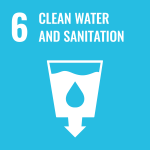
UNHCR is committed to ensuring access to sanitation for vulnerable communities. We have dedicated Zakat funds to provide cash assistance to refugees and internally displaced persons in several countries in MENA and beyond, enabling them access to hygiene and sanitary products and personal protective gear to protect them from COVID-19.
In Chad, Sadaqah funds helped provide Sudanese refugees and host communities with access to safe and clean water through the solarization of water pumps, such as solarizing boreholes to reduce the associated energy costs. Furthermore, the access to water pumps was improved and water sources were built in schools to make sure that refugees have enough water to combat the spread of COVID-19.
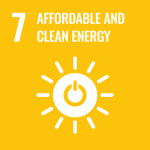
Access to safe and sustainable energy is a basic human need. Without it, the forcibly displaced – particularly women and children – are more vulnerable and have less time to rebuild their lives. At UNHCR, we are committed to addressing the energy needs of refugees, improving access to sustainable fuel, powering health centres and utilizing solar-powered lighting.
Zakat funds in Bangladesh helped provide Rohingya refugees with Liquefied petroleum gas (LPGs), which is available locally in Bangladesh and was assessed as the best fuel alternative for cooking. UNHCR and partners carried out an assessment on the impact of the switch to LPG. The study found that LPG distribution has resulted in an 80% reduction of demand for firewood in the Rohingya households in the camps, reducing deforestation to well within sustainable forestry rates.
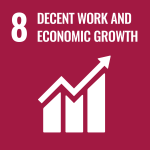
One of the main pillars of UNHCR’s work worldwide is to provide refugees, IDPs, returnees, asylum seekers, and stateless people with equal access to decent and sustainable work regardless of their gender, race, economic or legal status.
UNHCR has contributed Zakat funds towards providing sustainable and decent work for vulnerable communities by supporting income-generating activities in Nigeria and small businesses in Pakistan, as well as providing refugees and displaced persons with the financial and educational resources to ensure that their business can thrive in the long run.
We have also conducted livelihoods programs in several countries to ensure that refugees and IDPs can receive adequate support and training for employment, including but not limited to vocational training.
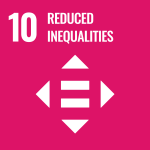
Due to their legal status, refugees often do not have the right to formally work in their host countries, resulting in inequalities of outcome and opportunity. The legal status of refugees often prevents them from having equal access to shelter, healthcare, education, and other services.
Zakat funds helped provide much needed assistance to vulnerable displaced families in Lebanon, Iraq, Jordan, Egypt, Pakistan, Bangladesh, India, enabling them to meet their basic needs and access the essential services needed to rebuild their lives.
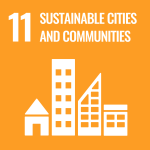
Zakat funds helped provide cash assistance to vulnerable displaced families in Lebanon, Jordan, Iraq, Yemen, Mauritania and Egypt. This assistance has allowed UNHCR to help families maintain access to safe and affordable housing by ensuring that refugees can pay their rent and reduces their risk of eviction.
In emergencies, Zakat funds have also provided shelter and core relief items to refugees, IDPs, and returnees, including tents, tarpaulin, mosquito nets, and waterproofing materials to ensure that families are safe from adverse weather conditions.
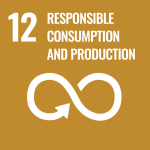
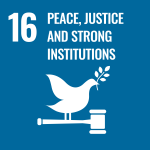
Zakat funds have helped provide vulnerable refugee families with cash assistance to reduce their reliance on negative coping mechanisms such as child labour, trafficking and child marriage.
UNHCR also provides cash assistance to unaccompanied and separated children (UASC – i.e., children under the age of 18 traveling and living alone in displacement) to enable them to survive and access the care and protection they need.
Moreover, UNHCR child protection programmes help prevent sexual and gender-based violence among unaccompanied children by ensuring that they have access to essential social services, including psycho-social support.
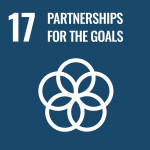
UNHCR has built partnerships with more than 30 diverse partners globally around the topic of Islamic Philanthropy, with the aim of mobilizing additional resources and advocating for the most vulnerable refugee and internally displaced families.

